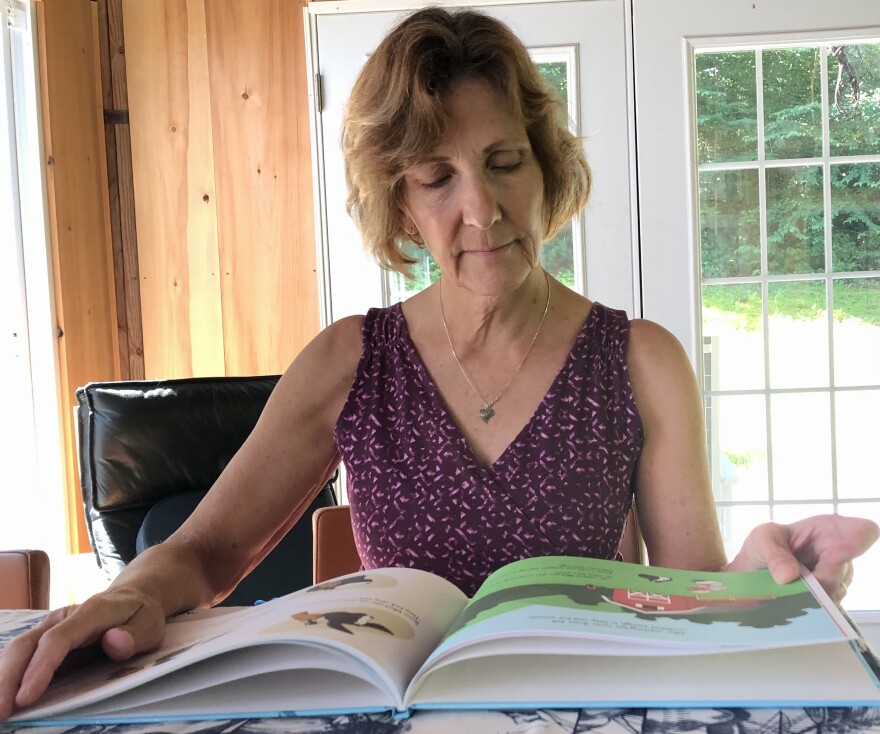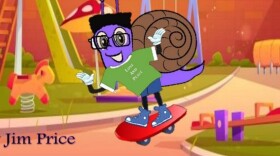Animals with sore throats, stuffy noses and allergies who are comforted by a curious and caring little girl who is chasing her dreams. That's the story in the first book by author Jennifer Welborn of Amherst, Massachusetts, "Dr. Rosie Helps The Animals."
Welborn says her book differs from those she remembers from when was young.
Jennifer Welborn: Well, the little girl is African American, and that's very different. And the illustrator is African American as well. It was her motivation, and mine as well, to have a little girl of color so that people could see a little girl of color doing ‘sciency things’.
And furthermore, when I grew up, there was Ranger Rick (Ranger Rick's Nature Magazine) and I majored in Wildlife Management. I didn't have women doing ‘science things’ in picture books that I could then think “I could be that kind of a person when I grow up!” And it wasn't until I was a senior in high school that I even knew that my major existed.
The book begins by introducing the reader to a veterinarian, who is Rosie's mom. NEPM’s Carrie Healy asked Welborn, a former middle school science teacher, to read from a later section of the book.

After watching her mom, Rosie felt confident enough to help real live animals.
“Hi, rabbit! Why are you scratching your ears? Do they hurt you?”
Rosie could not imagine having an earache with ears that big!
Rosie lifted on ear and peered inside.
“They look very red.”
Rosie remembered how the liquid from an aloe plant can help the skin feel better. So, she put some in the rabbit’s ears, then rubbed them a bit.
“There you go, rabbit. You’ll feel better in no time!”
Carrie Healy, NEPM: How did you arrive at a story with a veterinarian, but have it not be graphic or scary. Instead, very approachable and with some good core STEM kind of concepts?
Jennifer Welborn: So, it started with my husband, who is a wildlife veterinarian. He showed me ( and this is going on five years now) a picture of a real baby giraffe with a neck bandage.
And I thought to myself, “Wow, that must really be a big problem if you're giraffe and you have problem with your neck” And then I said, “Well, do rabbits get earaches?” And he's like, “Yes, it's called otitis.” And I'm like, “Do pigs get stomachaches?” He's like, “Yes, it's called gastritis.” And I kept thinking of these animals that have kind of these exaggerated body parts that have real afflictions, like kids have. And then I thought, this is a story waiting to be written.
And kids could learn that animals aren't that different from us and that you can treat them with different kinds of things that are also used with people. And so that was kind of the connection. I think kids can really connect to it; They have boo boos, Band-Aids, and nasal spray. You know, they have all these things that little Rosie uses throughout the book. And she learned from her mom.
There are a lot of big concepts in there that are great for adults as they read to their children.
And there's another piece in there that was also intentional. If you notice, one of the things is that at the beginning, when Rosie first sees the animals, she sits back and she observes the animal to see if it's okay if she helps it. Because some animals, it's not okay!
I have a dog, and children will ask if they can pet the dog, which is great! You know that not every animal, or even people, care for somebody to come right up to them and touch them, or hug them or whatever it is. So, it's important to kind of step back, observe what's going on, try to read the behavior, and then if they look like they need help, then you can help them.



